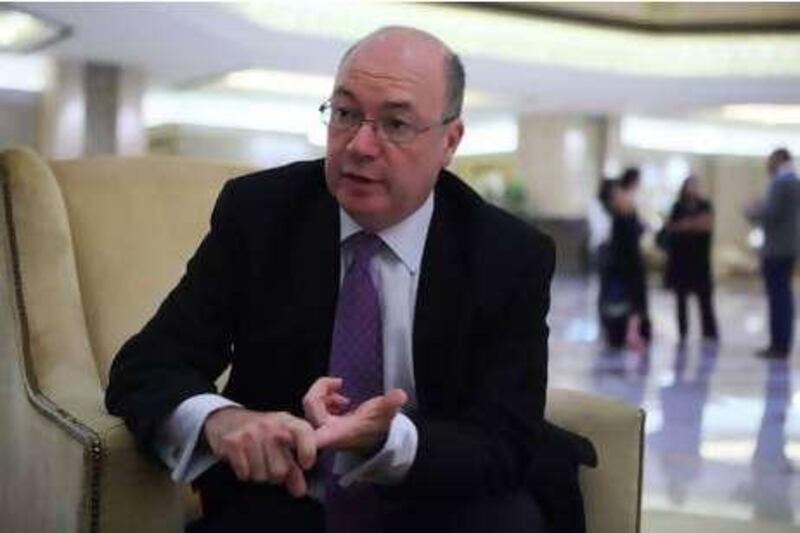The UK is “deeply concerned” by recent reports of chlorine attacks in eastern Ghouta, its Middle East minister said on Friday.
In a statement, Alistair Burt said that if it is confirmed that the Syrian regime has used chlorine, “it would be yet another appalling example of the Assad regime’s blatant disregard for both the Syrian people and its legal obligation not to use chemical weapons”.
The comments came a day after Washington warned it was prepared to consider military action if necessary to deter chemical weapons attacks by the Syrian government. They also came as US defence secretary Jim Mattis said America is concerned about the potential use of sarin gas in Syria.
Mr Burt referred to three specific reports of chlorine attacks by Syrian regime forces in Eastern Ghouta so far in 2018.
Describing the airstrikes and violence by the regime and its backers in eastern Ghouta and Idlib as “unrelenting”, Mr Burt warned of a dire humanitarian situation which is at risk of worsening. He added that the violence “[continues] to claim indiscriminately civilian lives on a daily basis”.
He warned that Russia’s repeated vetoes of the UN chemical weapons resolution in Syria “risk sending a dangerous signal to the Syrian regime that it can use chemical weapons with impunity”.
In November, Russia cast its 10th veto of United Nations Security Council action on Syria since the war began in 2011, blocking a US-drafted resolution to renew an international inquiry into who is to blame for chemical weapons attacks in Syria.
A resolution needs nine votes in favour and no vetoes by the United States, France, Russia, Britain or China to be adopted. The US draft text received 11 votes in favour, while Russia and Bolivia voted against it and China and Egypt abstained.
_______________
Read more:
[ UN: aid efforts in Syria are ‘getting nowhere’ ]
[ Tests link Assad government stockpile to largest sarin attack in Syria ]
_______________
While Russia agreed to the 2015 creation of the Joint Investigative Mechanism, it has consistently questioned its findings, which also concluded that the Syrian government used chlorine as a weapon several times.
Syria agreed to destroy its chemical weapons in 2013 under a deal brokered by Russia and the United States.
The UN Security Council is to meet on Monday, and Mr Burt said that Britain would use the opportunity to again call on Russia and the international community to come together “to hold the Assad regime to account for using these abhorrent weapons, to seek justice for the victims and to prevent further attacks”.
“The Assad regime must allow immediate, safe and unhindered access for humanitarian assistance,” he added. “We call on Russia and the regime’s backers to exert their influence to ensure this.”





